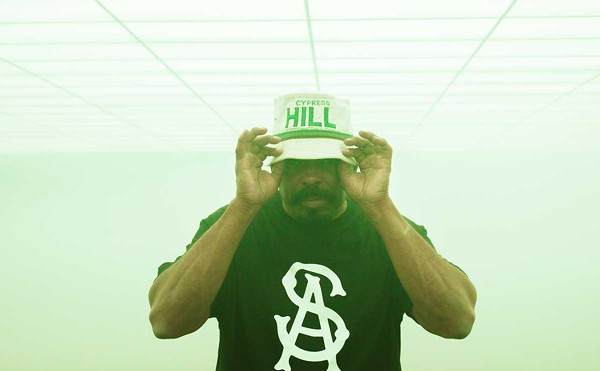The Rockets
The Rockets
No Ballads
Renaissance
It's difficult to listen to Detroit's Rockets without sensing tragedy, nodding mostly to its singer Dave Gilbert, a guy gifted with sexual tension and a voice tailored for '70s FM radio, but who drank himself out of stardom, and later, into the grave. And as much as Gilbert was troubled — adding the booze, coke and attendant rock star life — guitar hero Jimmy McCarty and drummer-songwriter Johnny "Bee" Badanjek (both alums of Mitch Rider & the Detroit Wheels) were a musical force to be reckoned with. That confliction was palpable — and ultimately the band's demise — but when the tension worked, when the sparks flew, the band was on.
The unkempt combo was a missing link in Detroit rock 'n' roll, between the Stooges/MC5 and the Romantics. It had chart hits, but never owned the country like Bob Seger.
This reissue sees the CD debut of the band's 1979 self-titled second album and its 1980 follow-up No Ballads, both originally on the RSO label, both helmed by Allman Brothers producer Johnny Sandlin, both selling around 400,000 copies.
The former's recording sessions were reportedly rife with arguments and drugs but not so much to overshadow the songs and Seger, who gave the band the beautiful "Long Time Gone." The group also covered, with brilliant foresight and rockstar swagger, Peter Green's "Oh Well," which lit up American rock radio and spent weeks on the Billboard pop charts. Other highs included "Turn up the Radio," the languid "Lost Forever, Left For Dreaming," "Feel Alright," which is very "Diamond Dogs"-ish, and the weirdly disco'd "Can't Sleep." When the record hit store shelves, the band owned Detroit radio.
No Ballads had "Desire," the band's best, written by Rockets guitarist Dennis Robbins (now a successful Nashville songwriter) and Bee; it only dented Billboard's Top 100, but won mad radio play and should've landed the band atop the AOR heap. Buoyed by Bee's "Sad Songs," a "Sally Can't Dance" cover and an apt (and unironic) closer, Gilbert and McCarty's "Troublemaker," the album was serviceably rock-solid.
Hard to imagine, but here was a Motor City band penning true, blue-collar, Detroit-style anthems for hard-working beer drinkers, radio and girls, a band that'd trekked across this continent countless times playing arenas supporting the biggest names in rock 'n' roll, recorded five albums on four different major labels — it was a rock 'n' roll machine that did everything … but truly succeed.
Looking back, listening, something's dark about the Rockets, something feels doomed. Timing is everything and the end of the '70s might as well have been the end of the century, musically. Oh well.
Read the story of Dave Gilbert and the Rockets, Rocket to the Crypt.
Brian Smith is managing editor of Metro Times. Send comments to [email protected]




